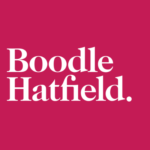Continue reading "Proprietary Estoppel: A separate cause of action?"
Proprietary Estoppel: A separate cause of action?


Continue reading "Proprietary Estoppel: A separate cause of action?"
This claim concerned a property. The freehold had belonged legally and beneficially to J who had run a business of a pub and restaurant from the property in partnership with her husband B. J died in 1997. On her death the property passed by her will to her executors and trustees, essentially for the benefit of B for his life and, subject to B’s interest, for J’s three children in equal shares (the will trust).
The claimants were the current trustees of the will trust and hence the legal owners of the freehold of the property. The first defendant was J’s son (one of the beneficiari...
The appellant (Mr Herbert) owned the freehold of a house and a large garden. The respondents (Mr Doyle and Mr Talati) owned the freehold of an adjacent property comprising a dental surgery with nine parking spaces. They also leased part of the ground floor in the main house from Mr Herbert. They carried on a practice as dental practitioners from the freehold and leasehold premises and they and their clients used the parking spaces. Mr Herbert wished to develop the former walled garden of Mansfield House and to build mews houses, but to do so he needed Mr Doyle and Mr Talati to exchange s...

Continue reading "Proprietary Estoppel: One day all this will be yours"
This was the hearing of an application for strike out of a Part 20 claim or alternatively summary judgment in favour of the defendants where the underlying proceedings related to two separate trusts: a settlement of land and other assets created on 18 February 1967 by Charles (the settlement) and a will dated 15 March 1998 of Charles’s son, John, who died on 20 December 2004 (the will fund).
The claimant in the underlying proceedings had sought declaratory relief regarding the construction of a March 2007 deed, alternatively rectification of it, whereby the trustees of the will fu...
The appeal arose from one of what were originally ten test cases in which the defendant home owners (the vendors) were persuaded to sell their properties to purchasers (the purchasers) who promised the vendors the right to remain in their homes after the sale. The purchasers bought the homes with the assistance of mortgages from lenders (the lenders), who were not given notice of the promises to the vendors. Neither the rights of occupation promised by the purchasers to the vendors nor the tenancies granted by the purchasers were permitted by the lenders’ mortgage. Exchange of contracts ...

Continue reading "Proprietary Estoppel: Words and deeds"
The deceased, Mr Seals, (D) committed suicide on 10 December 2013. He was depressed following his wife’s death from cancer in August 2010. However, the mental health team who saw him in September and November 2012 did not identify any major disordering mental illness. After his wife’s death D renewed a childhood friendship with the applicant Mrs Williams (B) and letters he wrote to her suggested a considerable degree of emotional dependence upon her. On 12 May 2011 he made a will using B’s solicitors and appointed her his executrix. He left her all his property and assets. At the same ti...
The claimant was Patricia Wright who made a claim against the estate of her mother Mary Waters. Mrs Waters died on 29 December 2010 leaving an estate worth £138,000.
Mrs Waters had two children – Patricia and David. Patricia (a widow) has one child Victoria and two grandchildren. Patricia suffers from numerous medical conditions and is wheelchair bound. Her outgoings exceed her income.
David married Susan and has four children.
Mrs Waters made a will in January 2009 leaving legacies of £5000 to each of David’s children, £7,000 between her sister-in-law and a niece an...
In 2002, the appellant and the respondent set up home together in a house in Droitwich. They remained unmarried. The property was purchased in the appellant’s sole name with his money alone, and he took on sole responsibility for the mortgage. On the breakdown of their relationship, the respondent claimed that the appellant held the property was held by him on constructive trust for both parties in equal shares. That claim failed before His Honour Judge Pearce-Higgins QC, but her alternative proprietary estoppel claim succeeded. The respondent was awarded £28,500 in satisfaction of the e...